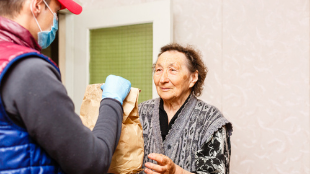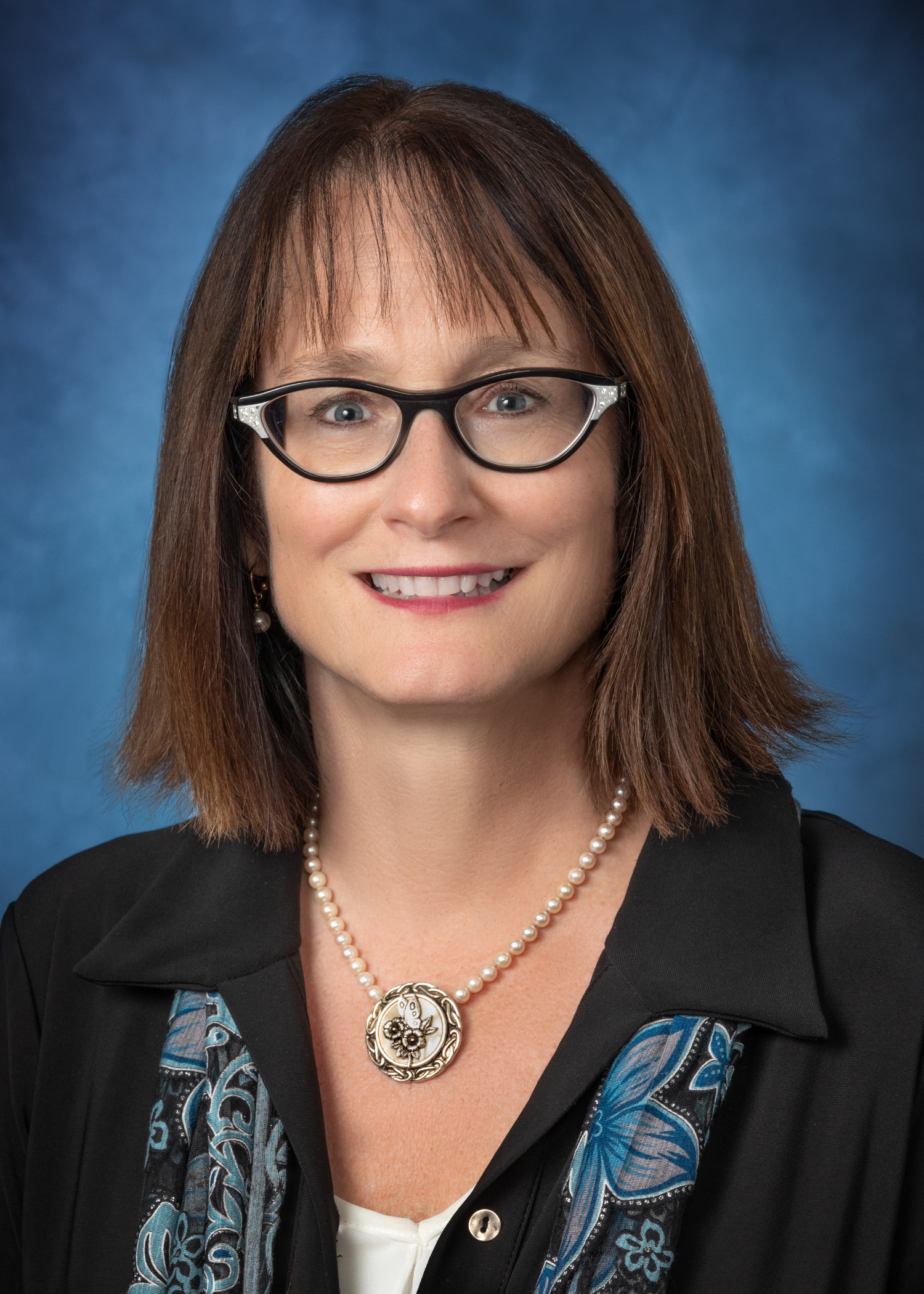
As the program officer overseeing our Aging in Community legacy priority area, it’s a pleasure to highlight the success of three grantees dedicated to addressing food insecurity among low-income older adults. This is my way of recognizing Archstone Foundation’s important work to enable older Californians to remain in their homes and communities while pivoting from this longstanding priority area to our new strategies, the Three Ts – Teams, Training, and Technology.
Food For Thought
Food insecurity means having limited, uncertain, or inconsistent access to the quality and quantity of food needed for a healthy life. This socioeconomic condition is driven by a lack of assets – often compounded by socioeconomic status, government policies, and funding levels – at the same time those assets are obligated mainly to cover expenses for housing, health care, and other basic needs. In California, 8.4 percent of older adults are food insecure, a percentage point above the national average, and in several of the state’s major urban areas the figure is closer to 11 percent.
Archstone Foundation began making Aging in Community grants in 2012, with its initial focus on The Village Movement, which seeks to find innovative, community-based ways to provide and coordinate services for older adults. The Foundation also used responsive grantmaking as a strategy to better understand emerging and unmet needs important to helping older people remain in their homes and communities. We received requests for, and funded, numerous programs designed to address food insecurity among older people in Southern California.
Recognizing food insecurity’s significant contribution to poor health outcomes and knowing that another 10,000 people are turning 65 every day, it was clear that these organizations were doing important work, but they were not building the evidence base or changing the system contributing to the problem. For the Foundation to have a real impact on food insecurity, we decided, we needed to do more than fund programs serving 50 or even 100 people and we needed co-funders to help us get there.
Discussions with our Board of Directors inspired me to reach out to stakeholders and leaders whose work addressed systems and policy change, focused on building the evidence base, included measurable health outcomes, bridged the gap between health care and social services, and included partnerships working collectively to impact issues greater than any of us could solve alone.
What We Funded
Three grants were central to Archstone Foundation’s commitment to addressing food insecurity:
- Nourish California (formerly California Food Policy Advocates, or CFPA) was awarded $350,000 over three years to increase food resources for California's older adults through policy connections.
- The University of California, San Francisco’s Center for Vulnerable Populations at San Francisco Zuckerberg General Hospital received $400,000 over two years to evaluate the impact of the 2019 law making hundreds of thousands older Californians newly eligible for CalFresh, the state’s name for the federal Supplemental Nutrition Assistance Program (SNAP).
- Project Open Hand received $686,000 over three years to support the launch of the first statewide Medi-Cal (the state’s version of Medicaid) Medically Tailored Meals Pilot program targeting low-income underserved older adults with congestive heart failure.
Project Outcomes
In 2003, Nourish California began assembling the evidence base to identify conditions needed for the repeal of California’s unique “cash-out” policy, under which supplemental security income (SSI) beneficiaries were not eligible to receive SNAP benefits. Notably, California’s SNAP enrollment rate was consistently among the lowest in the nation, and the participation rate of eligible adults 60 and older was the lowest of any state, at 19 percent.
Since the repeal of cash-out, 550,000 additional low-income Californians on SSI have qualified for food assistance. Nourish California’s objective with its recently concluded Foundation grant was to advocate for changing antiquated policies to make it easier for people to enroll and remain in CalFresh.
To that end, Nourish California helped persuade the state to abandon a burdensome annual eligibility reporting requirement (SAR 7) for 600,000 beneficiaries and all future older adult enrollees without earned income. This was an important success because people were six times more likely to leave CalFresh in the month their annual SAR 7 report was due, the UC Policy Lab concluded last year, and an estimated 500,000 income-eligible households have been dropping out of the program annually.
After helping secure three changes to make enrollment easier and more convenient during the pandemic, Nourish California is working to make these changes permanent. One is permission for people to “sign” their applications over the telephone. Another is putting the scheduling of eligibility interviews in the hands of the applicants, rather than with county officials who unknowingly may have mandated inconvenient and immovable times for phone calls.
Finally, Nourish California has been working to significantly simplify the application itself, reducing its length to three to five pages, which is typical in some states. Currently the application is overly complex, and at 18 pages is the leading reason older adults do not complete the enrollment process.
While Nourish California has been pushing policy changes centered on an evidence base it helped to lay long ago, UCSF is taking advantage of the opportunity the 2019 policy change provided to gather the first evidence to evaluate the extent to which SNAP benefits improve health outcomes, reduce medical spending and improve the capacity for older Californians to age in place – data policymakers and stakeholders need to support their efforts to fund or expand relevant policies, systems, and programs. With its grant, UCSF sought to prove that allowing hundreds of thousands more low-income Californians into CalFresh, and keeping them enrolled, will reduce health care utilization and government spending while improving health outcomes. The final report is anticipated to be released in December.
Project Open Hand has been building a different evidence base, one that will demonstrate the benefits of medically tailored meals, so their use by Medi-Cal continues or even expands, while also possibly influencing other healthcare stakeholders. Archstone Foundation’s grant, and $6 million from the state, supported a three-year pilot program implemented by the California Food is Medicine Coalition (CalFIMC) and overseen by the Department of Health Care Services. The pilot offered three free medically tailored, home-delivered meals daily for 12 weeks, plus four free medical nutrition therapy sessions with a registered dietitian, to more than1,000 people who were low-income high-health-care utilizers and diagnosed primarily with congestive heart failure. The final evaluation report is expected within the year.
Why This Is So Important
In 2019, nearly one in ten California households experienced food insecurity. Food insecurity and poor nutrition impose significant and long-term challenges on the health and well-being of older people – often limiting their ability to perform daily activities and live independently. This is often driven by financial stress compelling the need to choose between housing, medication, transportation, and a healthy diet. Not surprisingly, among adults who visit food banks, 63 percent describe having had to put their medical care ahead of eating.
Older adults lacking both healthy food and the ability to reliably manage their health are more likely to be malnourished and struggle with chronic disease and functional limitation. They are 57 percent more likely to have congestive heart failure than food secure older people, 65 percent more likely to be diabetic, and 66 percent more likely to have had a heart attack. And they are at significantly higher risk for falls, the leading cause of fatal and nonfatal injury among older adults.
Addressing food insecurity by promoting policy changes efforts and supporting programs such as medically tailored meals and SNAP – by gathering the evidence that can lead to sustainable funding sources – is important to improving the health and well-being of older Californians and improving the likelihood they can remain in their homes and communities.
Our grantees have been making that happen.


